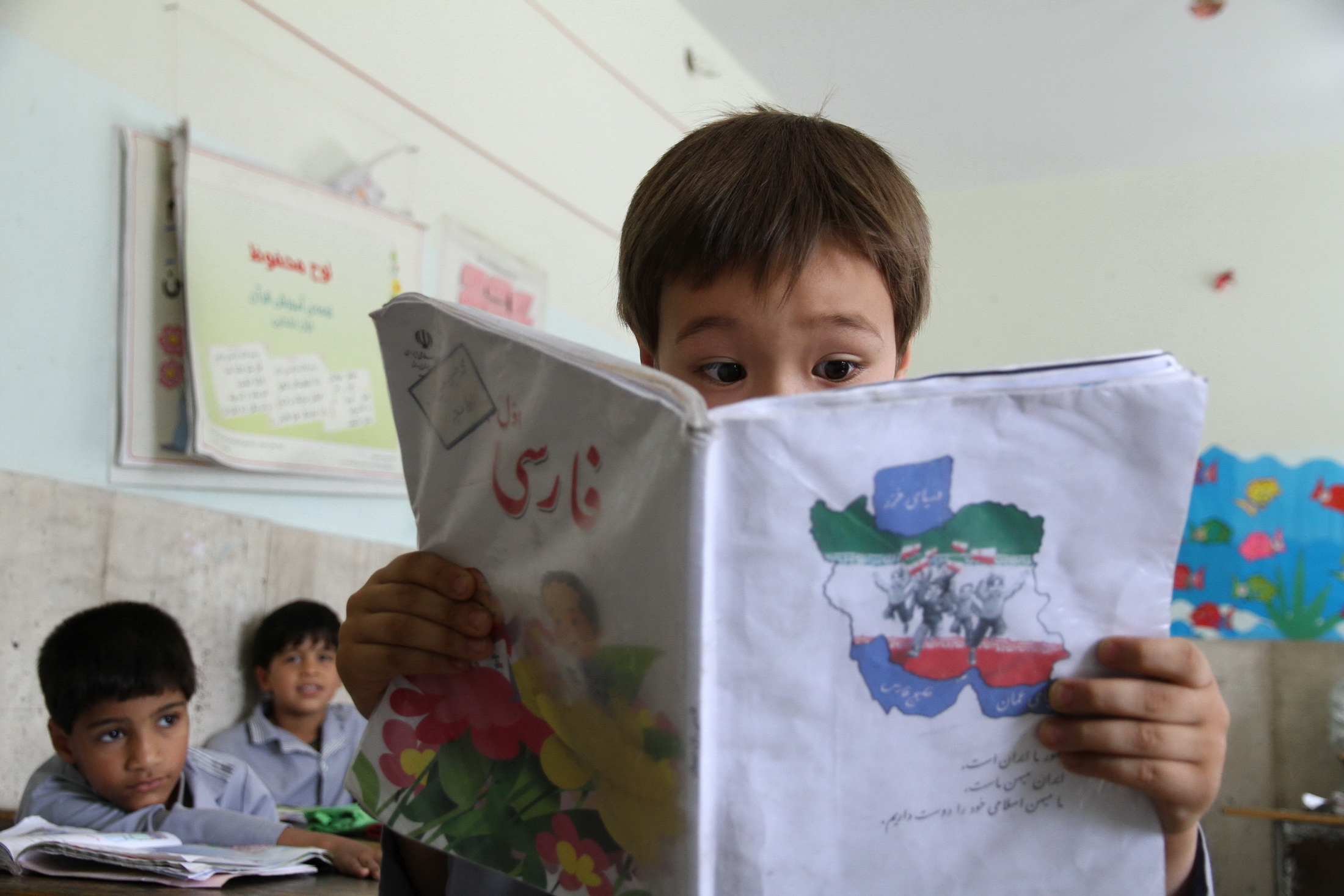UNHCR Iran works closely with the Government of Iran, especially the Bureau for Aliens and Foreign Immigrants’ Affairs (BAFIA), the Ministry of Education and Literacy Movement Organization to enhance refugees’ access to quality primary, secondary and tertiary education, to provide safe learning spaces for refugee children, and to ensure inclusive education opportunities for marginalized groups.
In May 2015, Iran’s Supreme Leader issued a decree allowing all Afghan children of school age, to attend primary and secondary school education regardless of their documentation status. Since 2016, refugee children do not have to pay refugee-specific school fees, which stood at 70-90 USD per child. This further ensures that refugees and undocumented children in Iran are given the same opportunities as Iranian children to get an education.
UNHCR also co-funds the construction and refurbishment of schools in densely refugee-populated areas. UNHCR has co-funded the construction of 11 schools in 2017, 6 schools in 2018 and 12 schools in 2019. Construction of schools benefits refugees and undocumented children, as well as Iranian children from the host community. UNHCR also works with the Minister of Education and the Literacy Movement Organisation to provide literacy classes to over-aged and out-of-school refugee children and adults.
Refugee education is not a peripheral, stand-alone programme, but a core component of UNHCR’s mandate on Protection and Durable Solutions.
Worldwide, of the 19.9 million refugees under our care, 7.4 million are of school age. Their access to education is limited, with 4 million unable to attend school.

